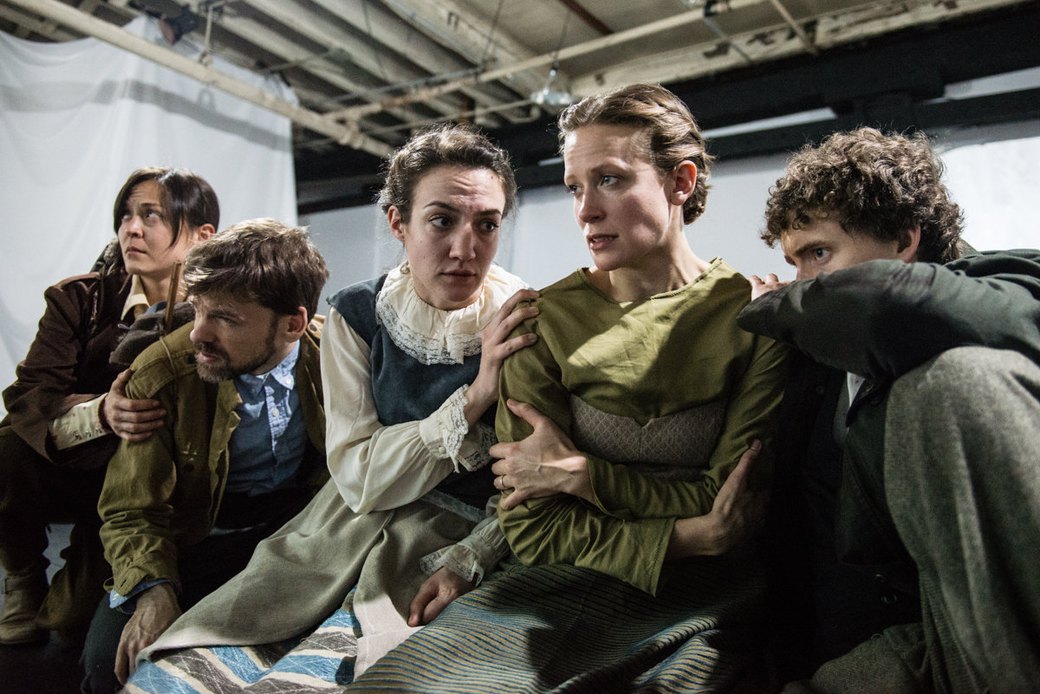
Behind an assuming facade on Metropolitan Avenue and up a flight of creaky stairs lies a magical place known as Standard Toykraft. For one last weekend, The Anti-Matter Collective will inhabit the space with their super-trippy retelling of the ill-fated Donner Party. “The Tower” relays the classic tale of the star-crossed pioneers in who, snowed-in and left with little other alternative, resort to cannibalism. The performance is vivid and rich and, rather that telling the story head-on, The Anti-Matter Collective creates a unique and meandering journey for the audience that transports them between the campsite of 1846 all the way to the present day, as well as inside the increasingly distorted reality that the pioneers experience due to severe starvation.

Rather than the traditional stage/house barrier, “The Tower” is set up as an interactive experience, where the audience is encouraged to move about the theater, sit down, or stand up, as each new scene unfolds around them. The minimalist set allows for the viewer to use their imagination and also enables the fairly seamless (and frequent) jumps between time and place.

The play begins at the Donner-Reed camp after the onset of early winter snows them in and they realize that they are quickly running out of provisions and won’t last through the winter. Part of the party decides to make the trek across the pass to Sutter’s Fort where they hope to bring help to the rest of the camp. Once the group sets off, the others left at camp continue to ration and lie in wait. As the story unfolds and both groups face the many physical and psychological obstacles that come with severe cold, dehydration, and starvation, the pioneers become more and more desperate, short-tempered and weak, yet try to forge ahead and hold on to their ever-wavering faith and the chance of survival.
The play’s explorations of each character’s inner turmoil – a mother’s guilt for leaving behind a sick child; a man’s lust for his Native American guide; a daughter’s feelings of abandonment by her father – are all paramount initially, yet as the situation becomes more and more dire, these higher emotions are overcome by natural survival instincts, leading to member of the party to do the most unspeakable deed.
Because of the lack of contextually framework, if you aren’t familiar with the Donner Party story, a few of the scene transitions were slightly confusing, but this only feeds into the feelings of disorientation and lack of control as we get deeper into the characters’ journey through snow.

While the subject of the play is centered around the Donner Party’s journey, its heart lies in this exploration of the individual self and the different ways a single historical moment can be felt and realized by the people who lived it. While based around historical “fact,” the play successfully explores into the many different ways the people who lived through the ordeal might have experienced it.




